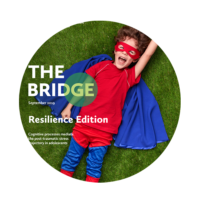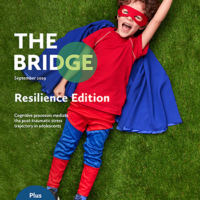Research digest
-

Long-term youth suicide prevention programs can have sustained effects
The Garrett Lee Smith (GLS) Memorial Suicide Prevention Act was passed in 2004 to address the public health issue of suicide in the USA. Since then, numerous programs have been funded via the GLS program to provide comprehensive, community-based suicide prevention programs to adolescents and emerging adults aged 10-24 years.
Read more -

Family-focused CBT is not superior to enhanced treatment-as-usual in reducing suicide attempts
In 2011, Esposito-Smythers et al. reported that integrated outpatient cognitive-behavioural therapy (I-CBT) significantly reduced substance use, suicidal behaviours, and the rate of health service use compared with enhanced treatment-as-usual (E-TAU) in adolescents with co-occurring alcohol or drug use disorder and suicidality.
Read more -

DBT is effective for youth with high levels of emotion dysregulation
In 2019, Molly Adrian and colleagues examined the predictors and moderators of treatment outcomes for suicidal adolescents who participated in a randomized controlled trial evaluating Dialectical Behaviour Therapy (DBT) versus Individual/Group Supportive Therapy (IGST).
Read more -

Childhood maltreatment increases suicide risk despite strong neuropsychological functioning
A cross-sectional and prospective study recently examined the independent effects of childhood maltreatment, neuropsychological functioning, and psychopathology, and their potential interactions with suicidal behaviour.
Read more -

Social connectedness is a protective factor against short-term suicide attempts (post discharge) in school children
Researchers in the USA have performed a multi-site, prospective analysis of >2,000 adolescents aged 12-17 years to try to determine the short-term predictors of suicide attempts within 3-months of an emergency department visit. The study population was enriched to include a high proportion of adolescents at risk for suicide attempts.
Read more -

Resilience Edition
In this edition we bring together a number of papers that broadly discuss the theme of resilience and developing resilience through therapy.
Read more -

Resilence Edition Editorial
In this edition we bring together a number of papers that broadly discuss the theme of resilience and developing resilience through therapy.
Read more -

Dialectical behaviour therapy for adolescents: a comparison of 16-week and 24-week programmes delivered in a public community setting
Clinicians in CAMHS across Ireland have sought training in DBT-A to treat the increasing number of adolescents presenting to their services with self-harm and/or suicidal behaviour. With a growing national interest in DBT provision in community services, the National DBT Project Ireland was established in 2013 to coordinate training and implementation of DBT (in both adult and child/adolescent services) in the Irish public health service.
Read more -

Self-Perceptual Bias and Internalizing Symptoms: Implications for ADHD
Attention-Deficit/Hyperactivity Disorder (ADHD) is a common childhood neurodevelopmental disorder, affecting 5 – 7% of school-aged children.1 Given that many children with ADHD experience difficulty paying attention and managing impulsive behaviors, it is not surprising that children with ADHD often struggle with basic tasks, such as schoolwork, daily routines, and social interactions.
Read more -

Help yourself (but get some support): meta-analysis of self-help interventions for children
We know that poor mental health in childhood is associated with poorer quality of life, increased likelihood of having a mental health disorder in adulthood and poorer occupational and social outcomes. We also know that there are numerous effective interventions for mental health problems, with over 750 treatment protocols for evidence-based psychological treatments in children. However, demand for treatment outstrips supply.
Read more